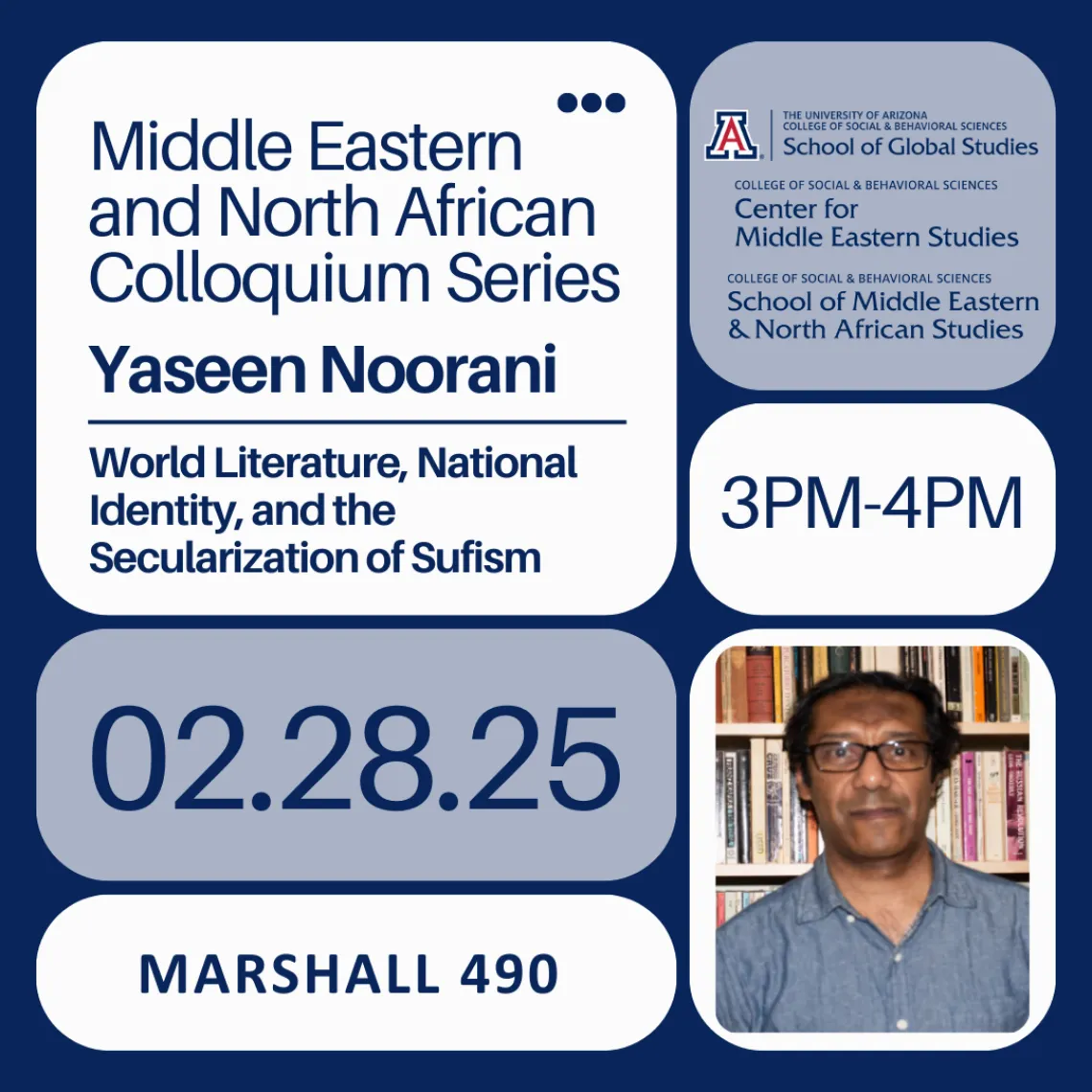World Literature, National Identity, and the Secularization of Sufism

When
Where
Middle Eastern and North African Colloquium Series
Yaseen Noorani holds a Bachelor’s Degree in History from the University of Virginia and a PhD in Comparative Literature from the University of Chicago. He has previously taught at the University of Edinburgh and the University of Michigan. His research centers on how social norms and ideals such as virtue, nationality, and the public/private division, have been imagined and represented in Middle Eastern culture in both premodern and modern eras. He has also published articles on modernism in Arabic literature. He is the co-editor of Counterhegemony in the Colony and Postcolony and the author of Culture and Hegemony in the Colonial Middle East.
In twentieth century literary and political discourses, particularly in Egypt, the Levant, and Iraq, the notion and image of Sufism, or Islamic mysticism, emerged as a key signifier. Romantic poets and critics developed a secular and aestheticized usage of the term ‘sufi’ in which it signified the Romantic emotive union with nature, often asserted to be most evident in Eastern literatures. The effect of this usage was to wrest authentic spirituality away from traditional religion and place it in the realm of the aesthetic, while at the same time wresting aesthetic supremacy from the exclusive claim of European art, often in an anti-colonial manner. The rise of modernism in Arabic poetry (e.g. Adunis) and fiction (e.g. Gamal al-Ghitani) in the 1950’s and 60’s involved the appropriation of specific Sufi texts and figures and their alignment with the formal techniques of modernism in a manner explicitly inimical to religious and rationalistic domination while voiding this Sufism of its devotional content. This presentation focuses on literary Sufism to show the force and effects of aesthetic ideology in refiguring cultural meaning and forging national identity.

